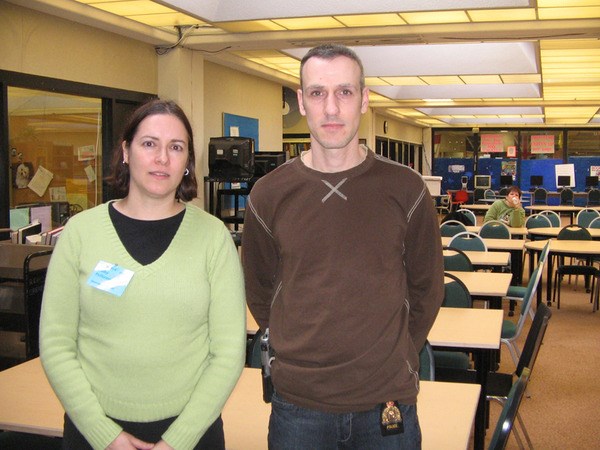The main message of a conference on gangs that teachers in the Mystery Lake School District attended on Feb. 24 was outreach and awareness.
Cathy Pellizzaro, who teaches kindergarten and Grade 2 at Deerwood Elementary School, is also chair of the equity and social justice committee for the Thompson Teachers Association (TTA). She has been teaching in Thompson for 16 years and says there's been a palpable shift and increase in gang activity recently.
"This is something that the equity and social justice committee has felt that teachers need more awareness of gangs are getting more prevalent now. Students are coming to school younger and younger with gang information. They're coming in as young as Grade 1 with gang knowledge, because of their siblings or their uncles and their aunts," she explains, adding that the increase in gang activity leaves the TTA concerned about the safety of students and teachers in schools - the reason the workshop came around.
The TTA partnered with the RCMP in Thompson to put on the presentation. Const. Bruce Gower with the general investigation section of the detachment handed out "Project Gang-Proof," a handbook from the Manitoba government on street gang awareness aimed at families and communities.
Within the handbook, street gangs are defined and gang organization is looked at and gang life is put under the microscope, with special emphasis on different levels of gang activity, females and gangs, the link between gangs and drugs and the link between drugs and sex. There's also information on why kids join gangs, the impact of gangs on communities, prevention and intervention tactics and suppression. There is also a wealth of information on who to contact when dealing with youth and gangs. Most poignantly of all, the handbook includes quotes from gang members serving time at Stony Mountain Penitentiary.
"Kids join to make money. Screw welfare. I'm going to sell drugs to make money. Drugs is fast money," one unnamed inmate says.
"Find out what's going on with the kid. Find out what's happening. Show these kids the ugly part of gangs - dead gang members, funerals, people crying. This is what happens to people who think that killing someone is OK," another member, also serving time at Stony Mountain, says. "I think about what I did every day. You think about your family - his family every day, and there's nothing I can do. It will never go away. People think a life sentence is peanuts, but when you're sitting in my shoes, it hits you. You think about it constantly."
There was also mention in the handbook of how the impact of residential schools is still affecting the younger generation today, making many students turn to gangs in their search for a family unit of some kind.
Pellizzaro says the teachers can take the information they learned at the conference back to their schools and help children that might be involved in gangs by better understanding them.
"We're hoping that even if we can help one student not turn to a gang, we can give them hope in their life."
Gower says it's not a problem that is probably ever going to disappear completely, but echoes Pellizzaro's views of trying to change lives one child at a time.




